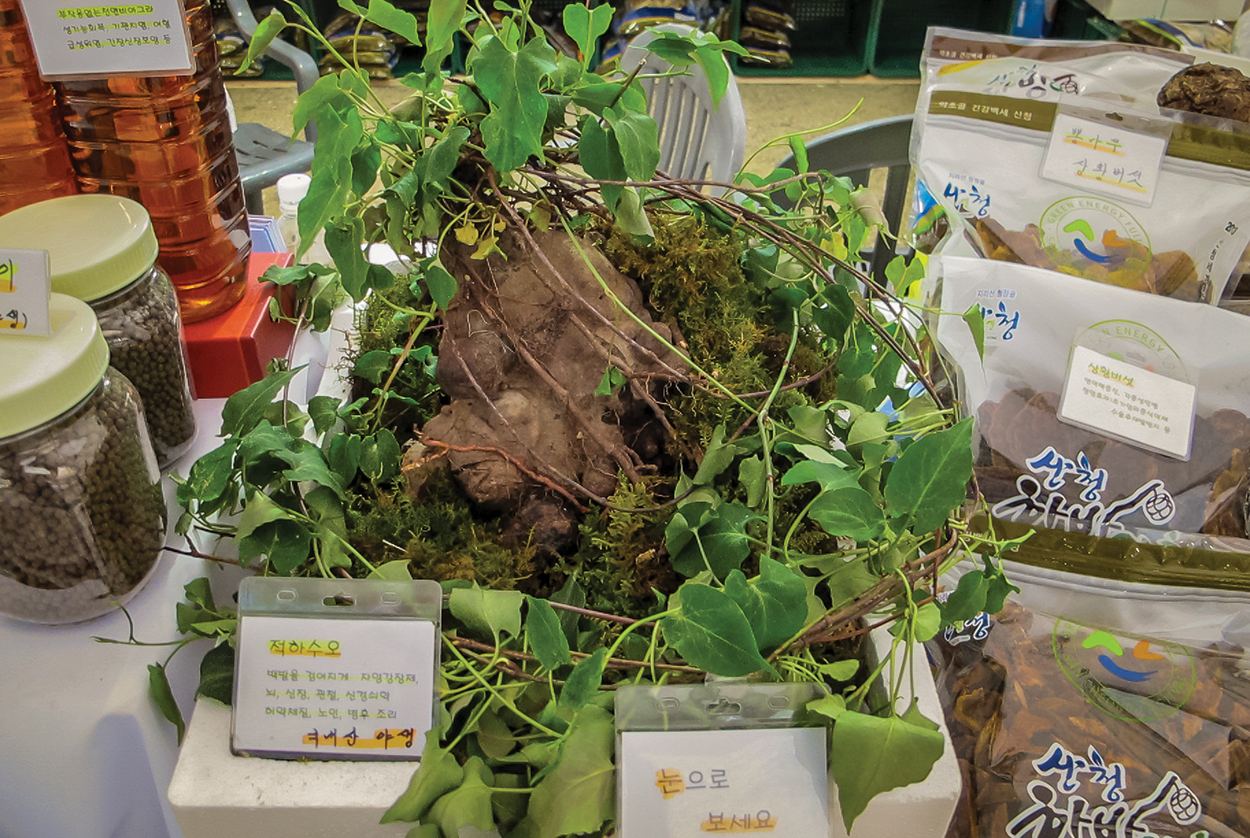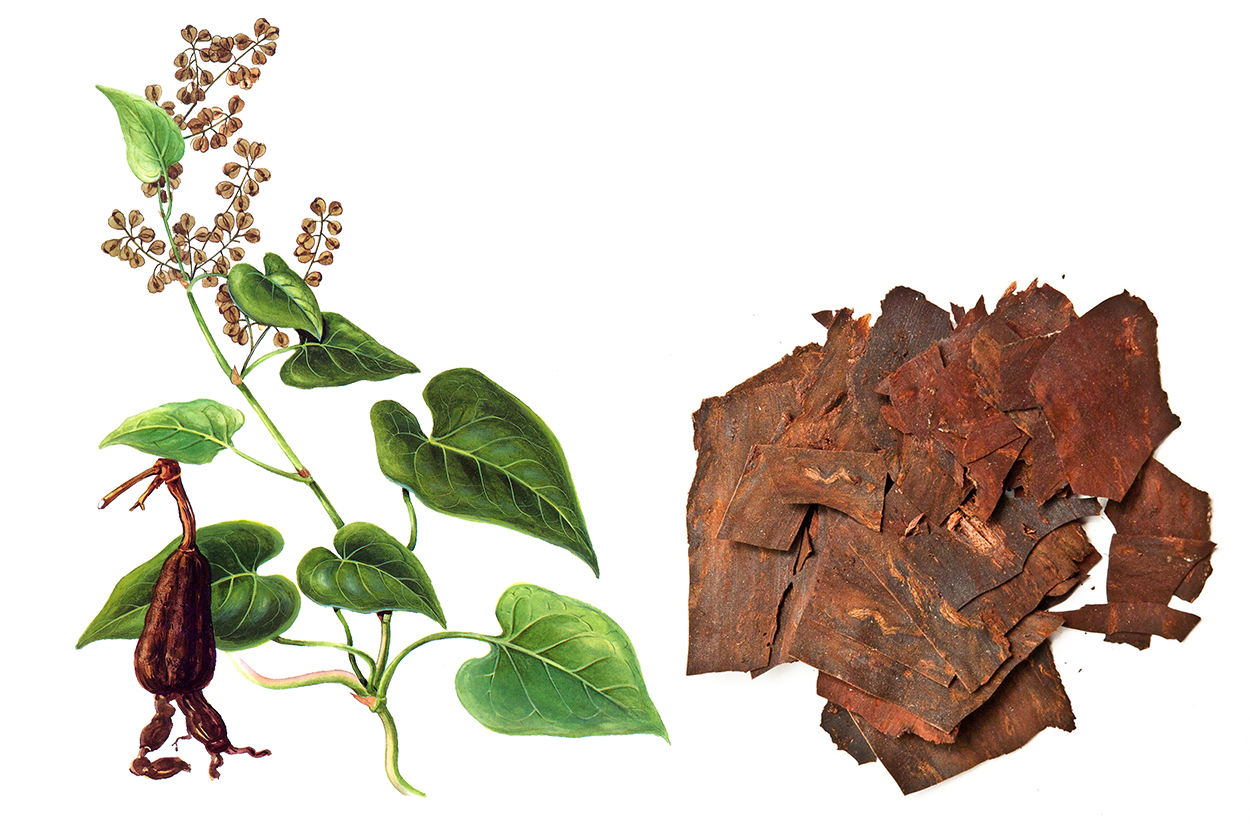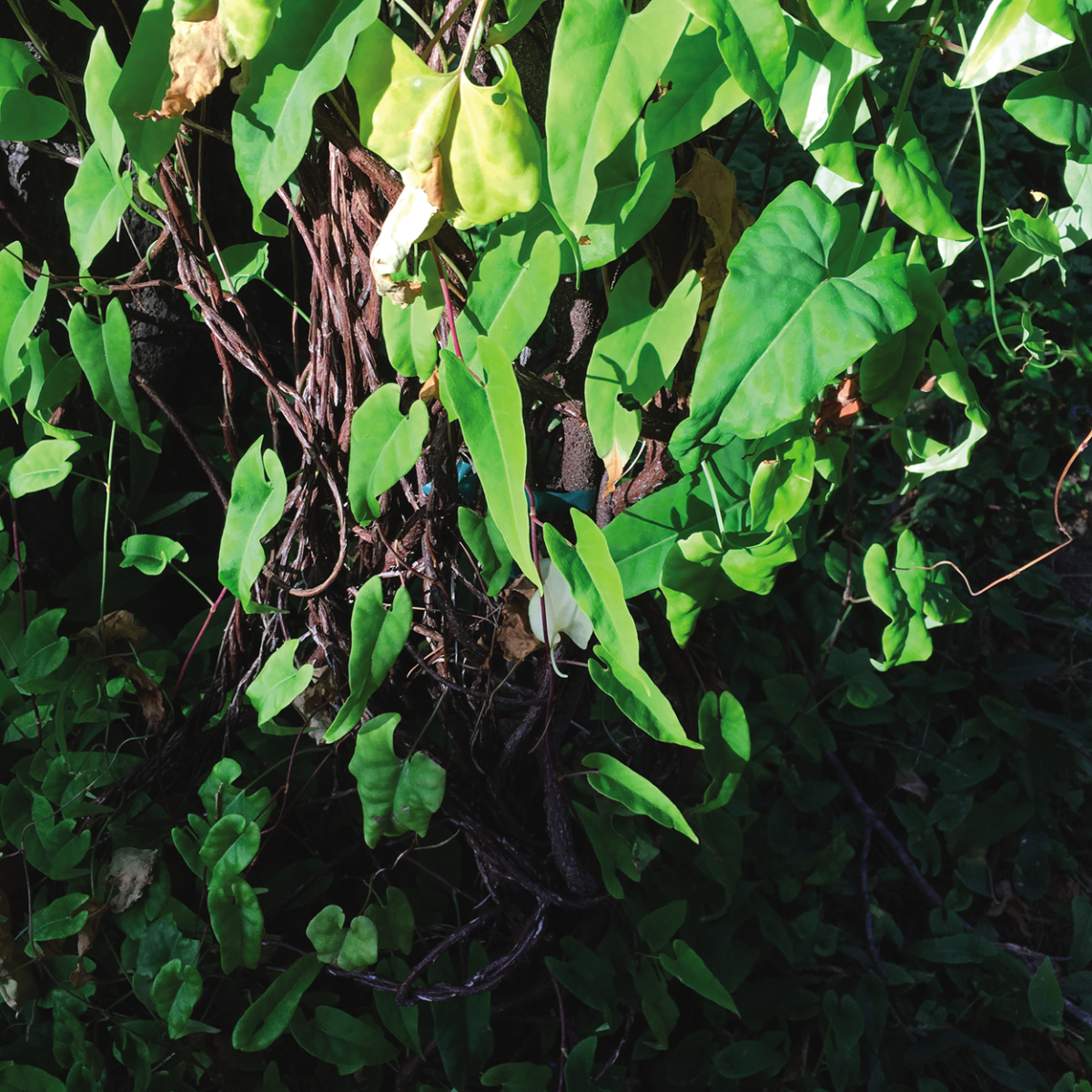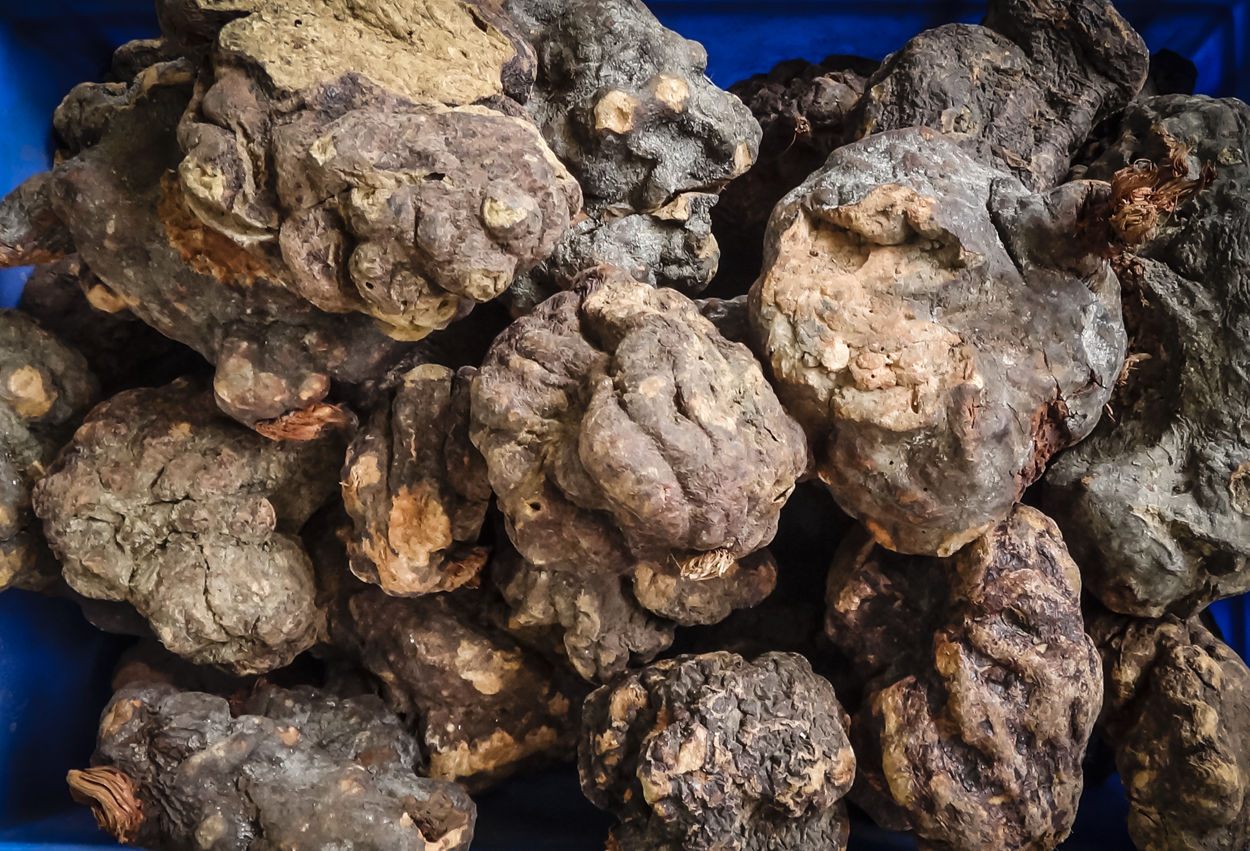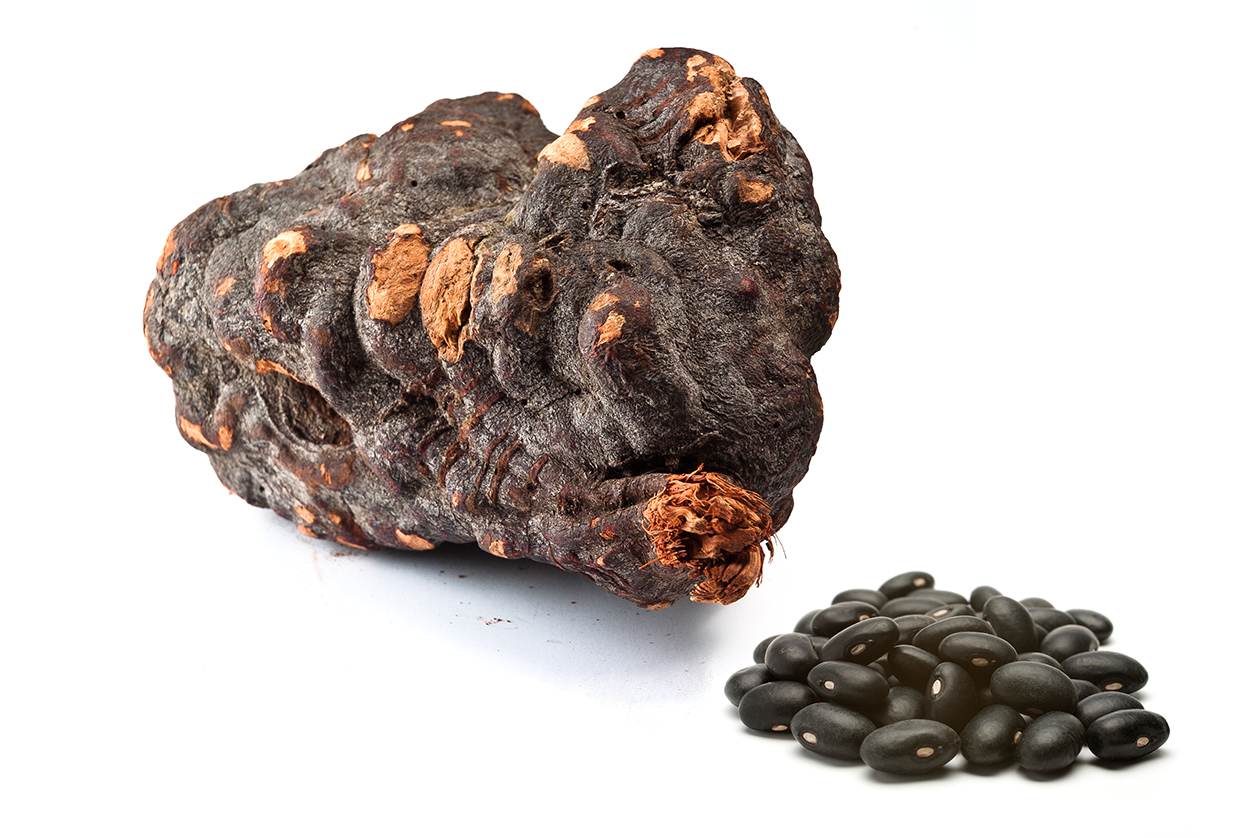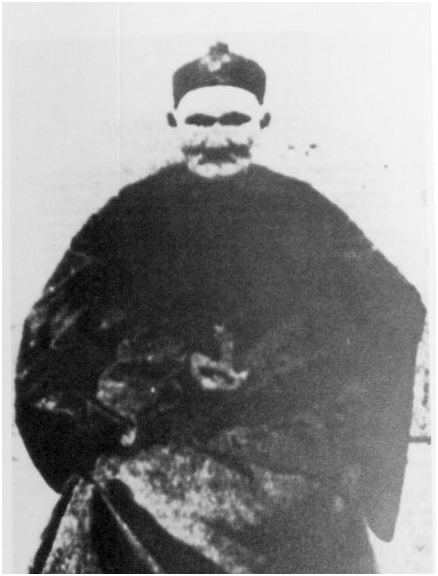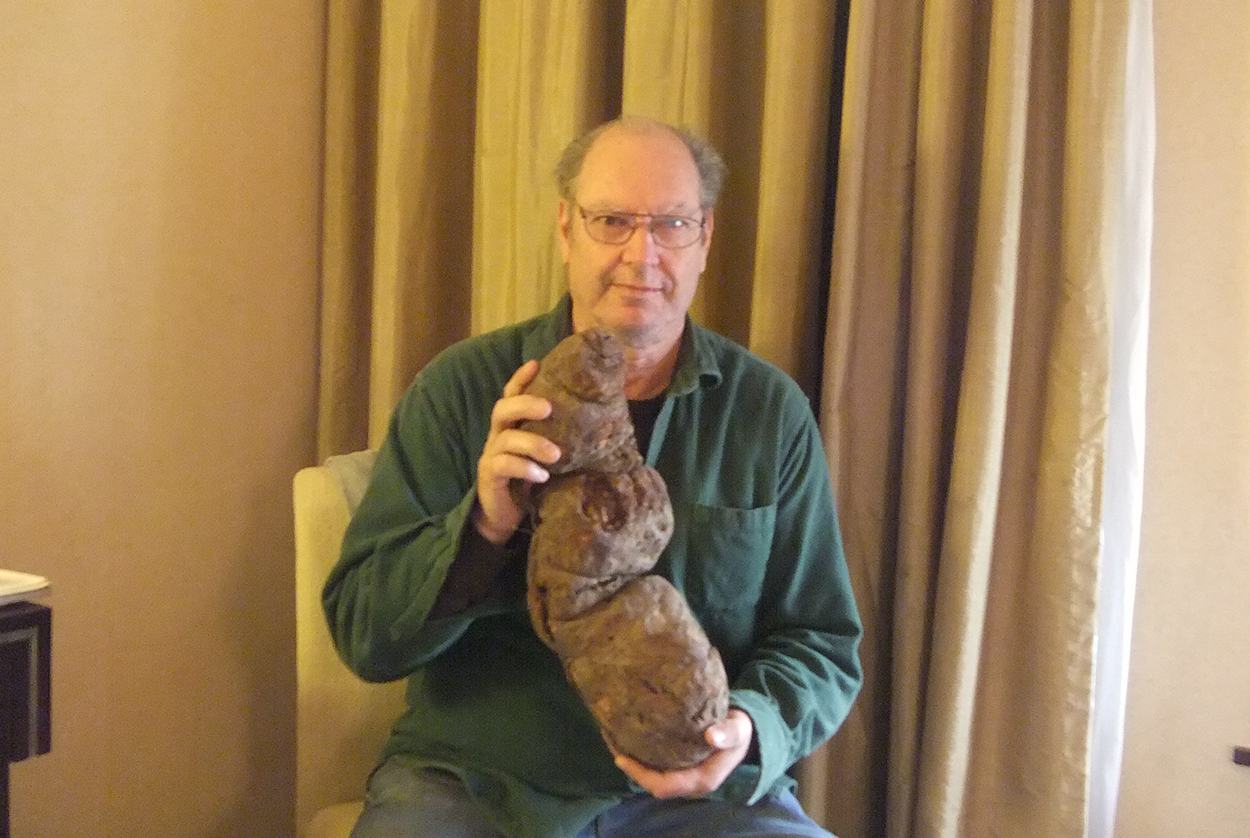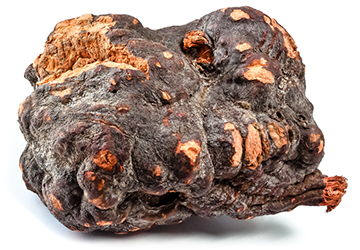“Prepared” or “not prepared,” that is the difference.
The tuber of He Shou Wu (Polygonum multiflorum) must be “prepared” in order to be used as a regularly–consumed tonic herb. Unprepared He Shou Wu does not possess the tonic effects and can have unwanted side effects. The freshly picked tubers are sliced, stewed in black bean soup (in a proportion of 10 parts He Shou Wu to 1 part black beans) until the soup is exhausted. The “prepared” roots are then dried. That is all there is to the “preparation.” Of course, no chemicals are used in the making of “prepared” He Shou Wu.

Active Constituents
The tuberous root of Polygonum multiflorum (He Shou Wu) has many active constituents. He Shou Wu is rich in anthraquinones, including many phospholipids such as lecithin (3.7%). A stilbene glycoside known as 2,3,5,4-tetrahydroxystilbene-2-O-β-D-glucopyranoside (henceforth refered to as “he shou wu super–glycoside”) is considered to be the principle active constituent responsible for He Shou Wu’s very powerful antioxidant activity. There are many similar stilbene glycosides present in He ShouWu. The stilbene glycosides in He Shou Wu are very similar to resveratrol. Several of the stilbene glycosides in He Shou Wu are stronger antioxidants than resveratrol.
Prepared He Shou Wu extract increases the cellular antioxidant activity
He Shou Wu supports the body’s innate ability to efficiently clear superoxide, the highly reactive pro–oxidant (free radical), from the body. This is a normal function that occurs trillions of times a day in every human being.
All organisms maintain complex innate antioxidant systems to prevent damage by oxidation. Antioxidants are chemicals that reduce the rate of oxidation reactions. Oxidation reactions are chemical reactions that involve the transfer of electrons from one substance to an oxidizing agent.
Oxidation is a constant function of life that is accelerated by stress and many other factors. He Shou Wu is rich in potent antioxidants and in antioxidant-potentiating molecules.
Superoxide dismutase (SOD)
Superoxide dismutase, generally referred to as SOD, is a class of closely related enzymes produced within the human body. Of all the antioxidants produced in the human body, SOD is king. SOD proteins are present in almost all aerobic cells and in almost all extracellular fluids. SOD transforms the superoxide radical into ions that are less reactive. These less reactive ions are then further transformed by the antioxidants catalase and glutathione into safe molecules. This transformation, called dismutation, is essential to life. He Shou Wu supports the normal dismutation process.
SOD is much more powerful than any other antioxidant. No external antioxidant is comparable to SOD, as external antioxidants may deteriorate by the time they enter our blood stream and because they cannot match SOD’s performance in clearing free radicals.
He Shou Wu has been shown to help maintain youthful levels of SOD in laboratory animals even as they age. It is widely believed that the SOD generating capacity of He Shou Wu is one of the reasons it has been found to have anti–aging and longevity increasing activity.
He Shou Wu enhances immunity
He Shou Wu has been found to support fundamental immunological functions in mammals.
He Shou Wu enhances adrenocortical function
He Shou Wu has been found to support adrenal gland functioning. He Shou Wu supports adrenal fortitude.
He Shou Wu traditionally functions as a Kidney tonic. Jing controls the functions of adrenal cortex.
He Shou Wu’s Blood Tonic Actions
He Shou Wu enhances the proliferation of blood producing cells
Scientific research supports He Shou Wu’s traditional function as a blood tonic. Prepared He Shou Wu can supports the hematopoietic (blood producing) function of the body. It does this by directly promoting the blood generating hematopoietic stem cells.
Improves red blood cell membranes.
Extracts of this herb have been demonstrated to help support the membranes of erythrocytes (red blood cells) and to support the growth and development of erythrocytes in test animals.
He Shou Wu is a rich source of lecithin which is an important raw material of red blood cell and other cell membranes (lecithin is also a major component of nervous tissues).
Contains iron
He Shou Wu contains iron, even more than other blood tonics such as Dang Gui and Goji.
Supports Circulation
Prepared He Shou Wu supports blood flow in humans and animals.
Protects the Liver
Classically, He Shou Wu is considered a Liver tonic. Many studies now support He Shou Wu’s protective and function–regulating actions on the liver. Throughout our lifetime liver cells continually replenish themselves. Adult humans do not die with the same liver they were born with. In experiments on mice, prepared He Shou Wu helps maintain healthy structural integrity of the liver. HeShou Wu acts as a powerful antioxidant in the liver.
Furthermore, researchers have found that this herb can stabilize liver cells by supporting membrane mechanism. He Shou Wu is a good source of plant lecithin. He Shou Wu has a special tropism (attraction) to the liver.
A zinc supplement
He Shou Wu contains zinc. The zinc content of prepared He Shou Wu is as high as 42 mg per 100 grams the herb. This is several dozen times higher than that of most herbs. Animal type foods are considered to be high in zinc, but they only have 3–5 mg per 100 gram, much lower than the 42 mg in He Shou Wu.
Zinc is an essential trace mineral required by all forms of life. Numerous aspects of cellular metabolism are zinc–dependent. Zinc plays important roles in growth and development, the immune response, neurological function, and reproduction. On the cellular level, the function of zinc can be divided into three categories: (1) regulatory, (2) catalytic, and (3) structural.
Zinc supports the metabolism of testosterone, and supports sperm quality and motility.
Effect on Memory
Dietary supplementation with either ethanol or water extracts of He Shou Wu can help maintain brain function and support learning and memory ability.
Potential Adverse Effects of He Shou Wu
Adverse effects are not common (very rare) with extracts of properly prepared He Shou Wu. Potential adverse effects of this herb are mainly digestive canal reactions, usually resulting in thin stool in cases where the herb is not tolerated, and occasional light abdominal pain, nausea, and vomiting. Raw, unprepared He Shou Wu is a laxative and should not be consumed as a tonic herb, i.e. on a long term basis. Some companies of He Shou Wu products are unaware of this issue and sell unprepared He Shou Wu, resulting in adverse effects.

“Prepared” versus “raw” He Shou Wu
The tuber of He Shou Wu must be “prepared” in order to be used as a regularly–consumed tonic herb. The roots are sliced, gently stewed in black bean soup (in a proportion of 10 parts He Shou Wu to 1 part black beans) until the soup is exhausted. The “prepared” roots are then dried. That is all there is to the “preparation.” Of course, no chemicals are used to prepare He Shou Wu.
The Toxicity Difference: Prepared He Shou Wu has extremely low toxicity.
He Shou Wu has been used for over two thousand years as a tonic herb in China and other Asian regions. In Asia, He Shou Wu is considered to be extremely safe and suitable for long term and daily use.
The LD50 tests for PREPARED He Shou Wu resulted in NO DEATHS, even after 1000 g/kg. On the other hand, the LD50 of RAW(Unprepared) He Shou Wu is 50g/kg, This means even if rats consume their body weight worth of prepared He Shou Wu, they survived. Prepared He Shou Wu is one of the safest herbs or foods known to science.
With an LD50 value of greater than 1000 g/kg, We are only recommending 6–12 capsules (about 3–6 grams) of He Shou Wu per day as a long term tonic dose. [LD50: The LD50 Alcohol Percolate Test — generally referred to simply as the LD50 is a standard toxicity test used in scientific research. The higher the number, the safer the test object. LD50 (Lethal Dose50) is the amount of a substance that, when administered by a defined route of entry (e.g. oral, injection or dermal, etc.) over a specified period of time, is expected to cause the death of 50 per cent of a defined animal population. If no deaths have occurred when the test subject has consumed its weight in the test substance without ANY deaths, the test substance is considered safe beyond question. A score of 1000 g/kg means that the test animal can consume its weight in test substance with 50% dying. But to have NO deaths at 1000 g/kg means the LD50 is actually much higher, but researchers tend to stop there because no animal or human will ever consume its weight in any substance in a short period of time.]
Chemical Constituent Difference — Why Prepared He Shou Wu Is Much Milder and Safer than Unprepared He Shou Wu
The conjugated anthraquinones (such as emodin) present in unprepared He Shou Wu are laxative. After preparation, the amount of conjugated anthraquinones in He Shou Wu decreases, while the freeform anthraquinones that have many health-supporting and protective benefits significantly increase. This is why prepared He Shou Wu has a much milder or nil laxative effect compared to raw, and why prepared He Shou Wu is so safe and effective.
Efficacy and Function Difference: The “preparation” eliminates the laxative effect of He Shou Wu and brings out the tonic effect. In addition to toxicity elimination, the special preparation process also enhances He Shou Wu’s therapeutic efficacy. He Shou Wu is known to support macrophages. In a test where mice were fed He Shou Wu prepared by different methods, or not prepared at all, at the dose of 6g/kg, only the prepared He Shou Wu that was stewed and steamed with black bean soup for 32 hours was shown to support the phagocytic activity of abdominal macrophage. He Shou Wu that was raw or prepared differently showed no obvious results.

Raw, un–prepared He Shou Wu is used as a laxative in Chinese herbalism, and is not used in tonic herbalism.
Dragon Herbs He Shou Wu products are always made from PREPARED He Shou Wu. Unfortunately, many nutritional supplement companies and marketers in America are unaware of this distinction between prepared and un–prepared He Shou Wu (Polygonum multiflorum). Raw He Shou Wu is of course less expensive, and that is often the driving force behind the way many herb companies make their purchasing decisions. As a result, He Shou Wu is sometimes blamed for the unwanted side effect of loose stool that results from the use of the incorrect herb (raw He Shou Wu). Again, Dragon Herbs is extremely aware of this issue and only uses PREPARED He Shou Wu to make its tonic products.*
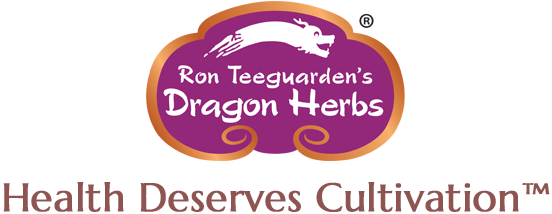

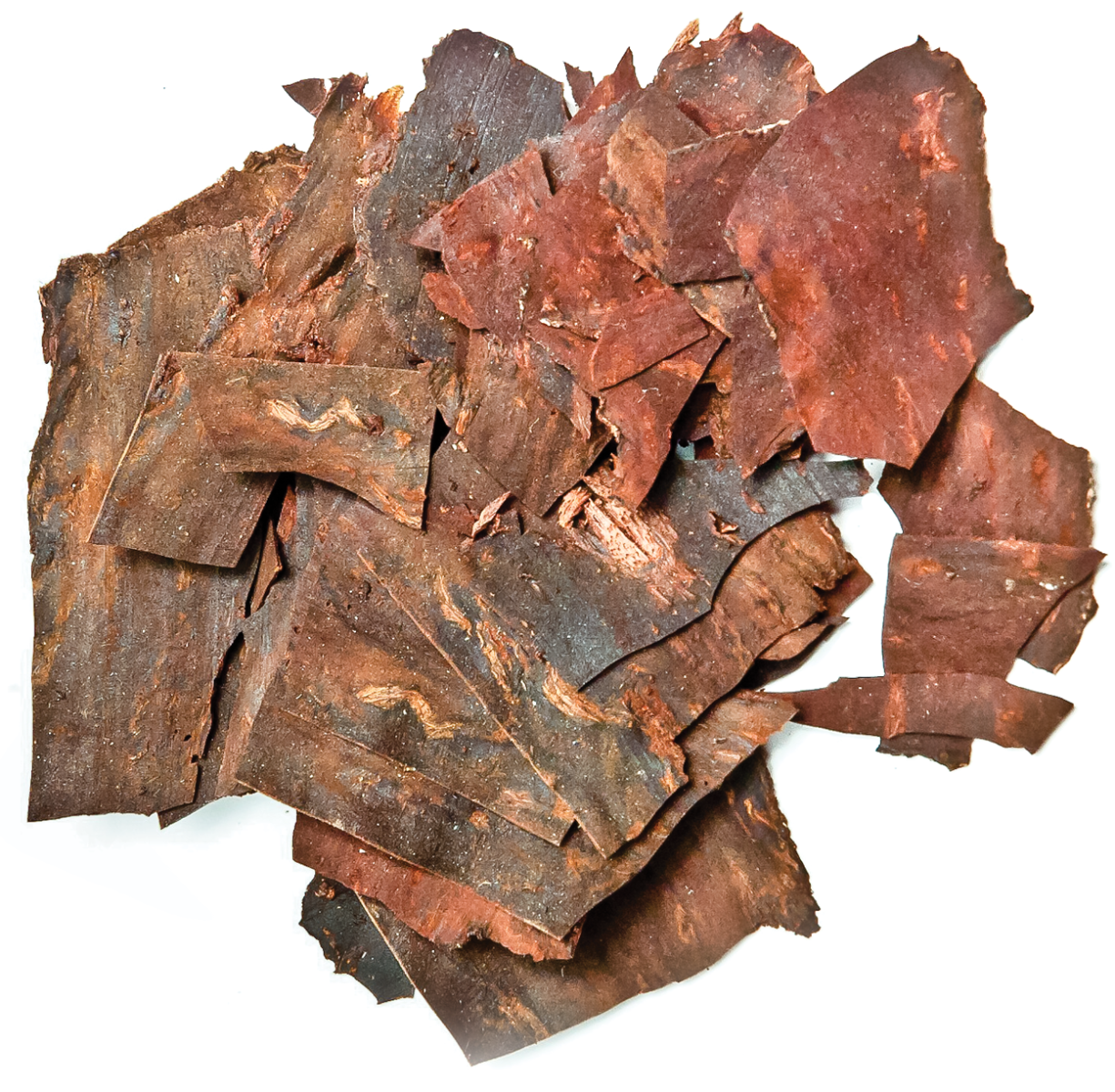 He Shou Wu (pronounced huh — similar to English “huh”, but not as open — show woo) is one of the most popular and highly revered tonic herbs in Asian herbalism. He Shou Wu is the prepared tuberous root of Polygonum multiflorum, a plant that grows in the mountains of central and southern China. It shares the position as the primary essence (Jing) tonic of Chinese herbalism with the Goji berry.
He Shou Wu (pronounced huh — similar to English “huh”, but not as open — show woo) is one of the most popular and highly revered tonic herbs in Asian herbalism. He Shou Wu is the prepared tuberous root of Polygonum multiflorum, a plant that grows in the mountains of central and southern China. It shares the position as the primary essence (Jing) tonic of Chinese herbalism with the Goji berry.